Two Sides of the Obama White House
Two Obama administrations are now on view The good one is for health care reform, the bad one for war escalation The good one is struggling to push a weakened health reform plan through Congress The bad administration has decided to expand the Afghanistan war and prolong it for years.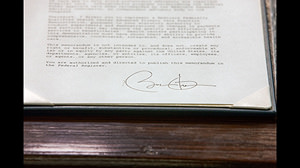
Two Obama administrations are now on view. The good one is struggling to push a weakened health reform plan through Congress. The bad administration has decided to expand the Afghanistan war and prolong it for years.
Last weekend, President Barack Obama himself led the good side, going to the Capitol to give senators a 30-minute pep talk on passing the health care legislation.
Defense Secretary Robert Gates and Secretary of State Hillary Clinton represented the bad side. They assured the generals and Republican and Democratic supporters of the war that the president really didn’t mean to say that the United States was setting a 2011 deadline for beginning to withdraw from Afghanistan. He had implied such a deadline in his West Point speech on the war.
“It will begin in July 2011,” Gates said on “Meet the Press.” But he made it clear that this was a deadline that doesn’t mean much, saying “how quickly it goes will very much depend on the conditions on the ground.” He said the U.S. will have “a significant number of forces in there” for “two to three to four years.”
Clinton said, “What we’re talking about is an assessment that in January 2011 we can begin a transition, a transition to hand off responsibility to the Afghan forces.”
And no matter what he said at West Point, Obama has warned that we’re in Afghanistan for the long haul. Talking to reporters before the West Point speech, he said, “… after eight years — some of those years in which we did not have, I think, either the resources or the strategy to get the job done — it is my intention to finish the job.”
What job? Conquering the Afghanistan-Pakistan borderlands—an impossibility—would not stop killers from emerging all over the globe. Remember Fort Hood? And what about David C. Headley of Chicago, accused of spotting targets for the Mumbai terrorists?
Many progressives are surprised and angered by Obama’s move, but they shouldn’t be. I share their anger, but not their surprise. He may have promised a rose garden, but he didn’t promise peace. Listening to him during the campaign, I could foresee an extended war, a nagging pain that wouldn’t go away. I thought of the old colonial United Kingdom, with troops in hostile lands, engaged in perpetual wars they inevitably lost.
From the first days of his presidential campaign, Obama said he favored keeping enough troops in Iraq to protect themselves, American civilians and Iraqis who had helped the United States. And he consistently advocated a stepped-up war in Afghanistan. Adding it up, that was a lot of troops.
Only two candidates for president, Gov. Bill Richardson of New Mexico and Rep. Dennis Kucinich of Ohio, favored bringing our forces home.
As Democratic excitement over Obama grew through 2008, progressives thronged to the rallies and buried themselves in the grass-roots work so essential to the Obama campaign. This was history, and they were part of it. By Election Day, the country was deep into the Great Recession and Iraq and Afghanistan had faded from public consciousness, as had what Obama said about them.
Looking ahead, the additional troops in Afghanistan face great difficulties. That was shown in a report on a workshop held in Afghanistan on Nov. 27 by the United States Institute of Peace, an independent, nonpartisan, national organization created by Congress to help prevent violent international conflict and promote stability and post-conflict development. It was not an anti-war meeting. The workshop was convened at the request of Gen. Stanley A. McChrystal, the commander in Afghanistan, and was attended by nearly 60 members of the armed forces.
One of the purposes of the workshop was to let troops know what they’ll encounter in the justice system as they go about following the president’s order to “finish the job.” The report, found on the institute’s Web site, www.usip.org, said that troops will probably find “no state justice institutions … yet one of the key demands in cleared areas [is] for justice and fair and transparent means to resolve … disputes.” Afghan community leaders fear the “Taliban will someday return and exact revenge” against those who cooperate with the Americans and their allies. The troops will have to work with these leaders, unfamiliar to most of them. Another threat is criminal control of traditional justice institutions.
In the difficulties facing the troops and their surge, the justice system, while important, doesn’t rank with key tasks such as building an Afghan army and police force, stopping the drug trade and ridding the central government of corruption. As Tom Engelhardt blogged on TomDispatch.com, “this war looks to be all job and no finish.”
As we’re preparing to pour troops into Afghanistan while maintaining a substantial force in Iraq, the Senate slowly debates the health bill with Democratic leader Harry Reid and his allies trying to fashion a compromise that will satisfy the handful of conservative Democratic holdouts.
Sen. Barbara Mikulski of Maryland told the Senate the legislation is “the most important social justice vote we will cast in this decade.” If she and the other Democrats can put it all together, Obama will have left a great legacy. This is the good side of the Obama administration.
But the accomplishment will be diminished, perhaps all but forgotten, if he and his generals and diplomats—the administration’s dark side—lead the country into a war that extends past his presidency.
Your support matters…Independent journalism is under threat and overshadowed by heavily funded mainstream media.
You can help level the playing field. Become a member.
Your tax-deductible contribution keeps us digging beneath the headlines to give you thought-provoking, investigative reporting and analysis that unearths what's really happening- without compromise.
Give today to support our courageous, independent journalists.
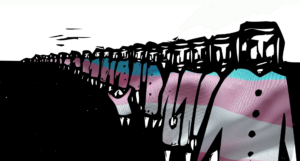
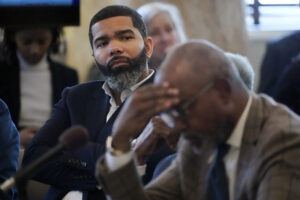


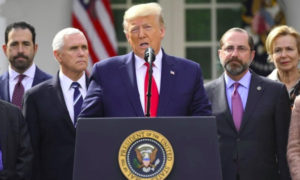
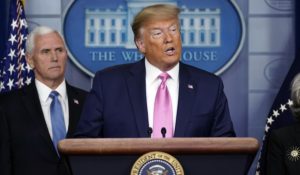
You need to be a supporter to comment.
There are currently no responses to this article.
Be the first to respond.